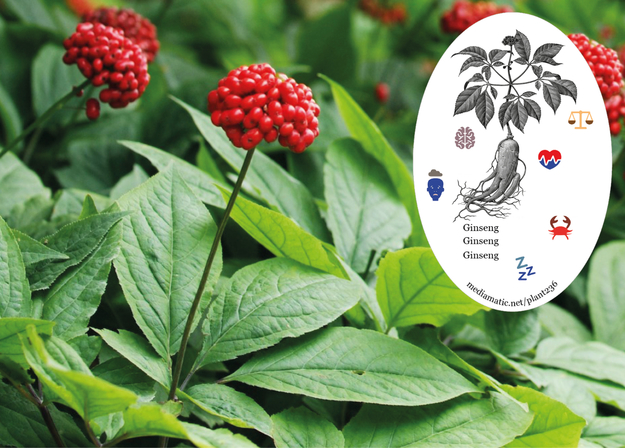Ginseng has a history of herbal use going back over 5,000 years. It is one of the most highly regarded of herbal medicines in the Orient, where it has gained an almost magical reputation for being able to promote health, general body vigour and also to prolong life. The root is adaptogen, alterative, carminative, demulcent, emetic, expectorant, stimulant and tonic. It both stimulates and relaxes the nervous system, encourages the secretion of hormones, improves stamina, lowers blood sugar and cholesterol levels and increases resistance to disease. It is used internally in the treatment of debility associated with old age or illness, lack of appetite, insomnia, stress, shock and chronic illness. Ginseng is not normally prescribed for pregnant women, or for patients under the age of 40, or those with depression, acute anxiety or acute inflammatory disease. It is normally only taken for a period of 3 weeks. Excess can cause headaches, restlessness, raised blood pressure and other side effects, especially if it is taken with caffeine, alcohol, turnips and bitter or spicy foods. The roots are harvested in the autumn, preferably from plants 6 - 7 years old, and can be used fresh or dried. A dose of 10ug/ml of ginseng saponins has been shown to be significantly radio-protective when it is administered prior to gamma-irradiation. The leaf is emetic and expectorant. The German Commission E Monographs, a therapeutic guide to herbal medicine, approve Panax ginseng for lack of stamina (see for critics of commission E). Source: https://pfaf.org/
Ginseng
Ginseng
Find more about this plant on Wikipedia.
